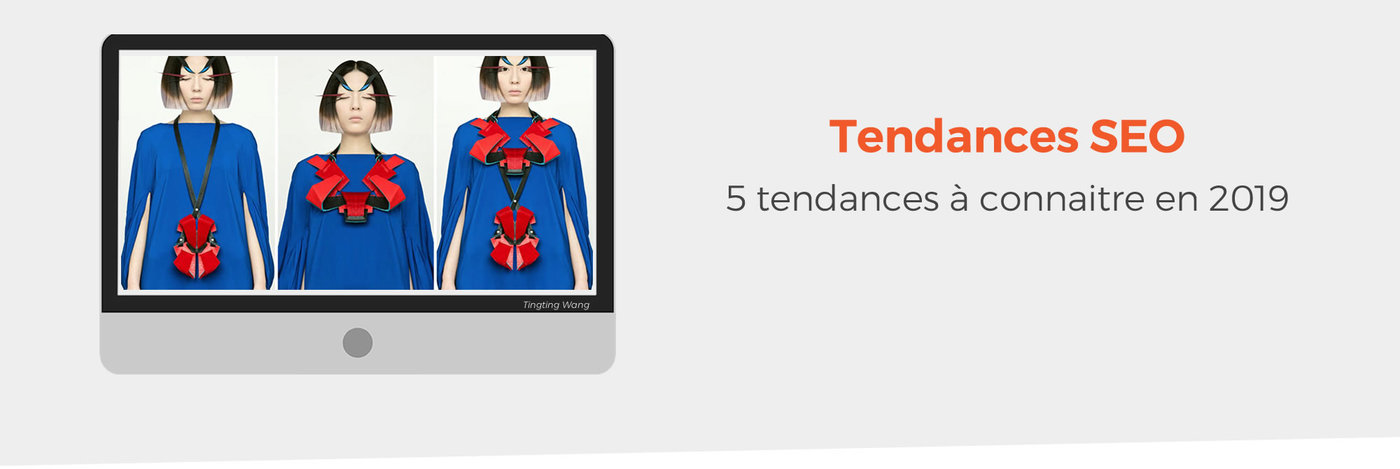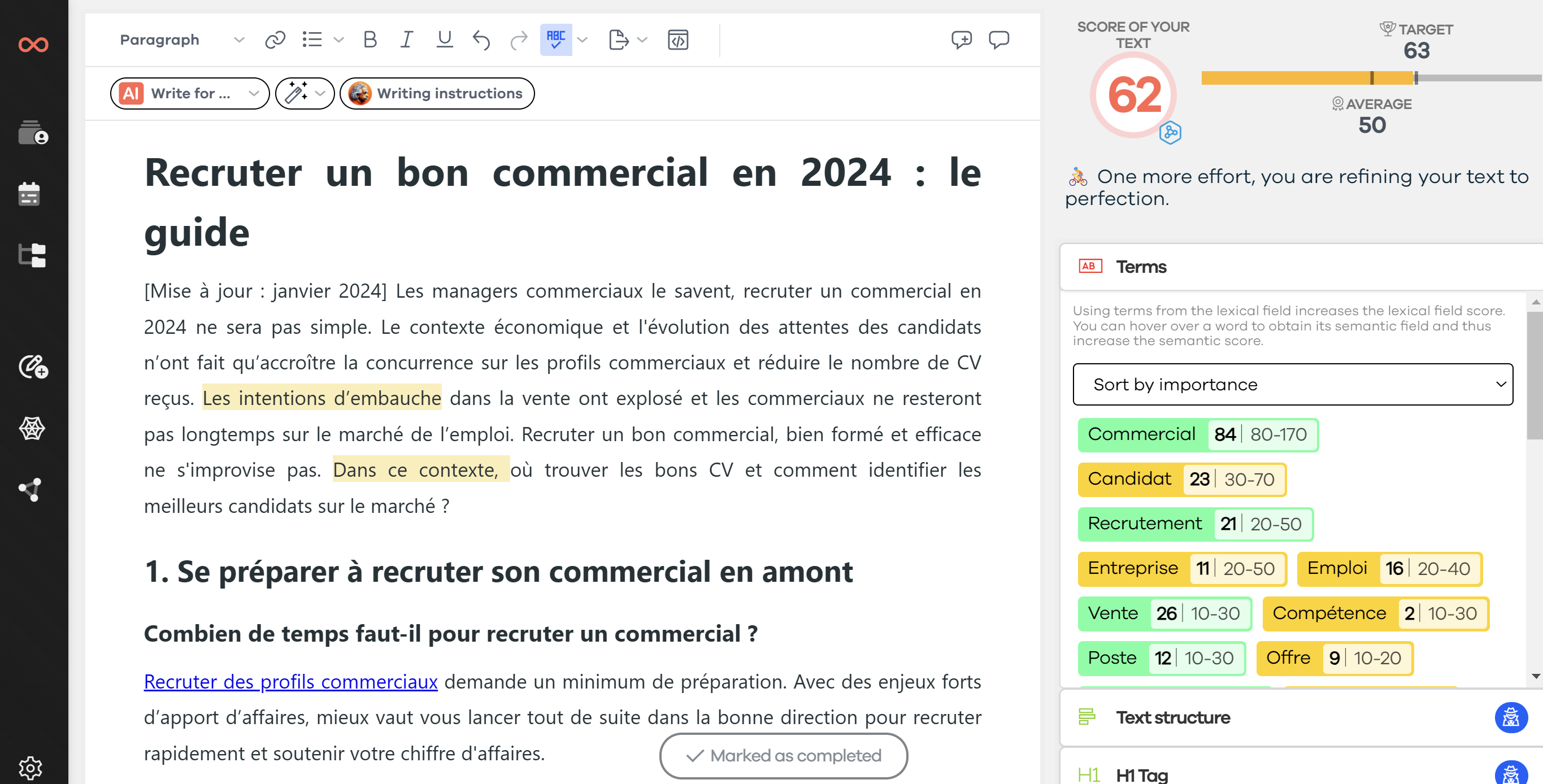The digital marketing universe is constantly changing.
Indeed, it's often when we think we're up to date that we realize, in reality, there's still much to do. The only way to thrive in an ever-evolving environment is to adapt.
In 2018, natural search engine optimization was marked by Google's strong desire to improve the quality of search results. We witnessed the advancement of mobile domination, search personalization, and numerous algorithm updates.
For 2019, I wanted to provide you with a forecast guide of SEO trends. It's with these issues in mind that I advise you to approach the new year.
This guide is perfect for anyone looking to improve their knowledge and skills in SEO.
Trend #1: Search Intent Optimization
With billions of searches conducted every day, Google will need to rely more on artificial intelligence. AI makes the search process more natural and human.
You probably know RankBrain. This algorithm uses Machine Learning to analyze the content it indexes. Google uses it to better understand the user's search intent. AI then uses the information provided by RankBrain to improve the relevance of search results.
In short, this algorithm is capable of "learning" and taking into account the user's intent. This results in a better search experience.
Search intent is the user's goal when formulating their query in the search bar. If, in 2019, you fail to meet their demand, you risk being quickly overtaken. So, remember, it's never too late to focus on meeting users' needs!
The guidelines (Google Search Quality Guidelines) will help you better understand Google's expectations. You will be more able to understand the importance of user intent.
Websites with high E-A-T (Expertise, Authoritativeness, Trustworthiness) that are relevant will be well-ranked. Lack of relevance will be penalized.
If you want to improve your knowledge in this area, I highly recommend reading our following blog post: Search Intent at the service of content.
Carefully analyze your old content and optimize it to meet the user's search intent.
Trend #2: Aiming for Position Zero
This SEO trend has been repeated for several years now. Position zero or "featured snippet" refers to the result appearing at the top of the search page. This result is above the website in the first position. This position has existed since 2014 and yet few sites have included it in their strategy.
In 2019, position zero will play an even more important role in SEO. Indeed, it meets users' needs by providing simple answers.
Here's what Google thinks:
> “Position zero is used when we think this format allows users to easily get an answer, whether it's through the box or after clicking on the page. It's particularly useful for mobile users or during voice searches.”
Position zero is occupied by pages that meet users' needs by providing a simple answer. This answer is then displayed at the top of the SERP. I did a Google search to learn how to "paint a ceiling." Here's a screenshot of position zero for this search.

In May 2017, Ahrefs studied 2 million pages appearing in position zero. Among the 112 million keywords in their database, about 14 million (just over 12%) generate a position zero.
Position zero has many advantages. It will allow you to:
- Capture the traffic from the first position.
- Benefit from new visitors via voice searches.
- Strengthen your authority in your niche.
How to appear in position zero?
It goes without saying, but creating quality content is a crucial step when you want to be on the first page.
The majority of featured snippets are pages that appear on the first page of results or among the top 10 answers.
Try to optimize your content according to the question it answers. Again, Google is always looking for the best answer when it comes to position zero.
Put yourself in the users' shoes and list the answers they anticipate. Then change the layout of your text to fit position zero.
1. Determine the questions your target audience is asking and make sure to answer them.
2. Create content that focuses on your readers' questions and includes a list of names and useful numbers. Stay factual.
3. Write precise and elaborate texts in list form.
4. Organize your lists or paragraphs with headings.
5. Add quality images and videos to your content.
6. Obtain external links by promoting, on social networks or by email, content that answers frequently asked questions.
Reputation is considered by Google as a major factor in determining the quality of your content.
You now have all the information to be in position zero, it's up to you to play!
Trend #3: Voice Searches
According to Comscore, we spend an average of 3 hours and 35 minutes on our smartphones per day, and 40% of adults use voice search at least once a day. There are 35 times more voice searches in 2018 than in 2008!
Nowadays, users want detailed and reliable answers. Instead of typing a few words, we tend to use whole sentences. Voice search becomes longer and more conversational.
To make your site suitable for voice search, you need to take into account the use of direct questions.
Here are some examples:
- Hey Google, where's the nearest Moroccan restaurant?
- Siri, give me a cauliflower gratin recipe
The increasing use of voice search forces businesses to change their marketing and SEO strategies.
Voice search is expected to be one of the most popular trends in 2019.
According to some studies, the first result on a Google search page accounts for 35% of clicks. When the request is made via voice search, this result is even higher. Appearing at the top of the page is essential.
Respond to users' requests, write comprehensive texts, optimize content to appear in position zero, and think about keywords used in voice search.
How to adapt content for voice search?
You now know the importance of voice search. The question is, how do you adapt your content for voice search in SEO?
- Focus on questions!
When you use voice search, you don't use keywords, but rather a whole sentence.
Therefore, using whole sentences and long-tail keywords will be very beneficial when you want to reach the top of the page.
You need to identify the phrases your readers are likely to use and use them.
- Answer questions!
When you adapt your texts for voice search, you also optimize them for position zero.
- Improve your site's loading speed
The loading speed of pages on your site is an essential factor, as users expect a quick response.
The average loading time for a page on a mobile phone is 15 seconds. However, try to set a 3-second deadline.
Pay attention to your loading speed. This factor has a significant impact when it comes to voice search.
- Mobile phones and simplicity
Simplicity is another important factor. It affects the bounce rate and time spent on the site.
Simplicity should always be a priority. Adopting an adaptive or "Responsive Design" technique is essential.
- Test it out
You should always check the things you've optimized.
Test your site on different devices, check your competitors' rankings, and analyze the results on your keywords.
If you want to improve your knowledge in this area, I highly recommend reading our dedicated article: Improve your SEO in voice search.
Trend #4: Google's Mobile First Indexing
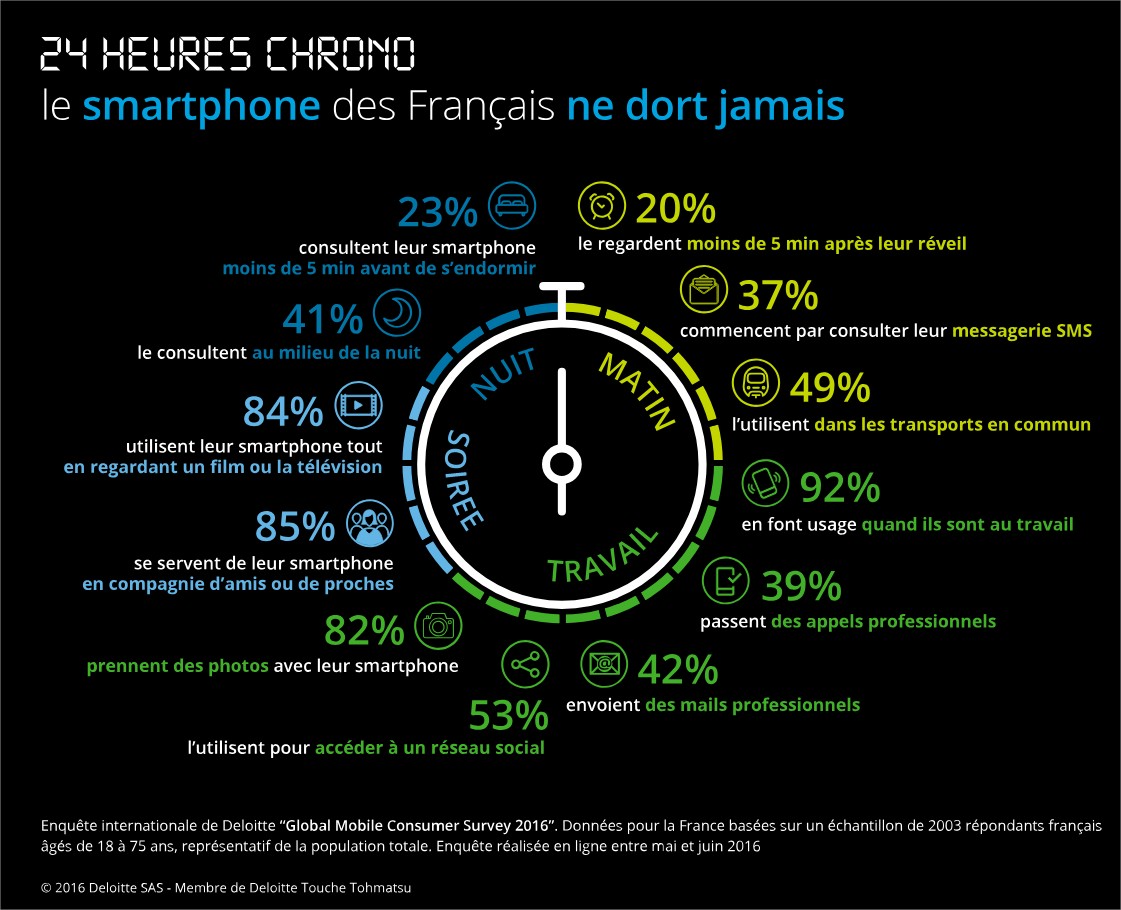
The most common uses on mobile phones according to a Deloitte study.
In recent years, Google has consistently emphasized the importance of mobile compatibility.
In 2019, mobile compatibility and Mobile First indexing will be among the main factors for good SEO and a high conversion rate.
In March 2018, Google announced the official deployment of the Mobile First index. It soon confirmed that many sites are being analyzed. In the near future, indexing systems will focus more on a Mobile First experience.
The content, links, speed, and user experience on the mobile version of your site will be the main drivers of your visibility. This approach is justified, as the majority of searches are conducted on a smartphone.
According to Google's guidelines, when a mobile user conducts a search on their phone, they primarily want a quick answer.
Preparing for Google's Mobile First Indexing
According to SEMRush, "a fast loading speed is an important SEO factor. 70% of sites have a loading speed of more than 7 seconds. At the same time, 53% of mobile users leave a site when the page loading speed is more than 3 seconds."
If you want to know the performance of your page on a mobile device, visit Google's PageSpeed insights tool. This tool will help you easily access your pages' loading speed and advise you on ways to improve it.
Google recommends using Responsive Design, as this technique allows the site to adapt to all shapes, sizes, and types of devices and deliver the same content as on a PC.
For the more technical among you, I recommend working with a CSS framework for your interface developments. My preferences are:
- Bootstrap
- Foundation
- Skeleton
- Semantic UI
- PureCSS
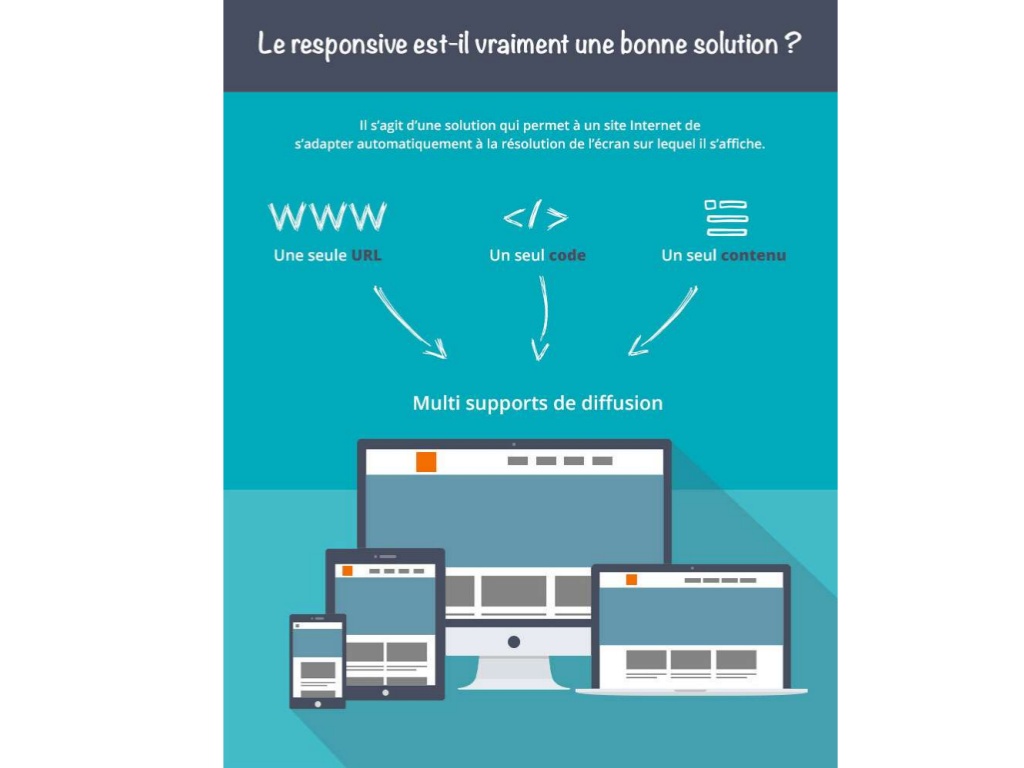
Responsive Design adapts to all devices and uses a single code capable of adjusting to the screen size.
Below, you will find several detailed recommendations. They will help you prepare for mobile SEO trends.
If you already have a mobile version, don't hesitate to update it according to the Responsive Design technique. This will improve the mobile user experience and allow you to get noticed by Google.
Trend #5: Artificial Intelligence (AI)
Whether we like it or not, AI will be the next big trend of 2019. It's set to transform all industries, just like electricity before it.
AI is computer programming that learns and adapts. Unfortunately, it's unable to solve all our problems, but its potential to improve our daily lives is significant.
The consequences of artificial intelligence
What exactly is artificial intelligence?
AI is the new way to gain a competitive advantage and create business value. This term refers to a machine's ability to reproduce human cognitive functions, with the ability to learn and solve problems. AI is very effective in decision-making. It allows for smarter decision-making.
This means greater efficiency and speed, improved innovations, and better opportunities!
So, what are the links between SEO and AI?
AI is in charge of the algorithm and data used to determine the best results. The data uses content, photos, and user behavior to help users access relevant information.
Google has built itself on its ability to understand the text appearing on web pages. Today, with the advances in deep learning, the Californian search engine can understand images, photos, and videos in a completely innovative way.
That being said, let's look at the areas of SEO where AI will have a significant impact.
1. AI and keyword research
SEMRush claims that AI is everywhere and that SEO specialists must update their knowledge of machine learning and AI.
In 2015, Google confirmed that it uses machine learning algorithms to sort search results. It's up to you to convince AI of the relevance of your answer.
The secret is to have a significant number of relevant publications : Massive and Strategic Qualitative Writing (MSQW).
2. AI and visual content
If you want to learn to play the guitar, what type of content do you prefer: text or video?
The answer is obvious, and Google is aware of it. Just type "learn to play the guitar" to see many videos among the results.
Search engines are now able to analyze this type of visual content.
3. AI and links
In my opinion, influential websites that post links to poor-quality content will be ranked lower in the future.
Since search engines will be able to know the click-through rate on external links and the time spent on the page, SEO consultants will need to focus on relevance and quality.
In the near future, it will be important to be more selective in your choice of external links. Here are some adjustments to make to your link building strategy:
- Direct your readers only to reputable websites
- Favor links to authoritative sites (scientific publications, recognized newspapers)
- Limit links to sites targeting the same niche
- Establish relationships with other influencers to improve your options
- Don't neglect internal links: they improve your site's structure
4. AI and content
Content quality is arguably one of the most important success factors. This remains true despite the globalization of AI and SEO.
Because even if AI can analyze data for you, it's up to you to provide quality content.
I am convinced that word vectors (word embedding) are the future of semantics in SEO. It's an exciting field; its capabilities and influence will only grow in the near future.
Word vectors are an algorithm that helps Google better understand the relationships between words, based on real-life language usage examples.
These vector models map semantically similar expressions, based on equivalence, similarities, or proximity of ideas and vocabulary.
A simple method for studying expressions is to search for the closest words for a specific user-specified keyword.
To put it simply, two close words in vector space tend to share a common context; while two distant words are considered unrelated to the context. And Google knows that!
SEOQuantum was created to study these word vectors and provide a simple solution to this future issue.
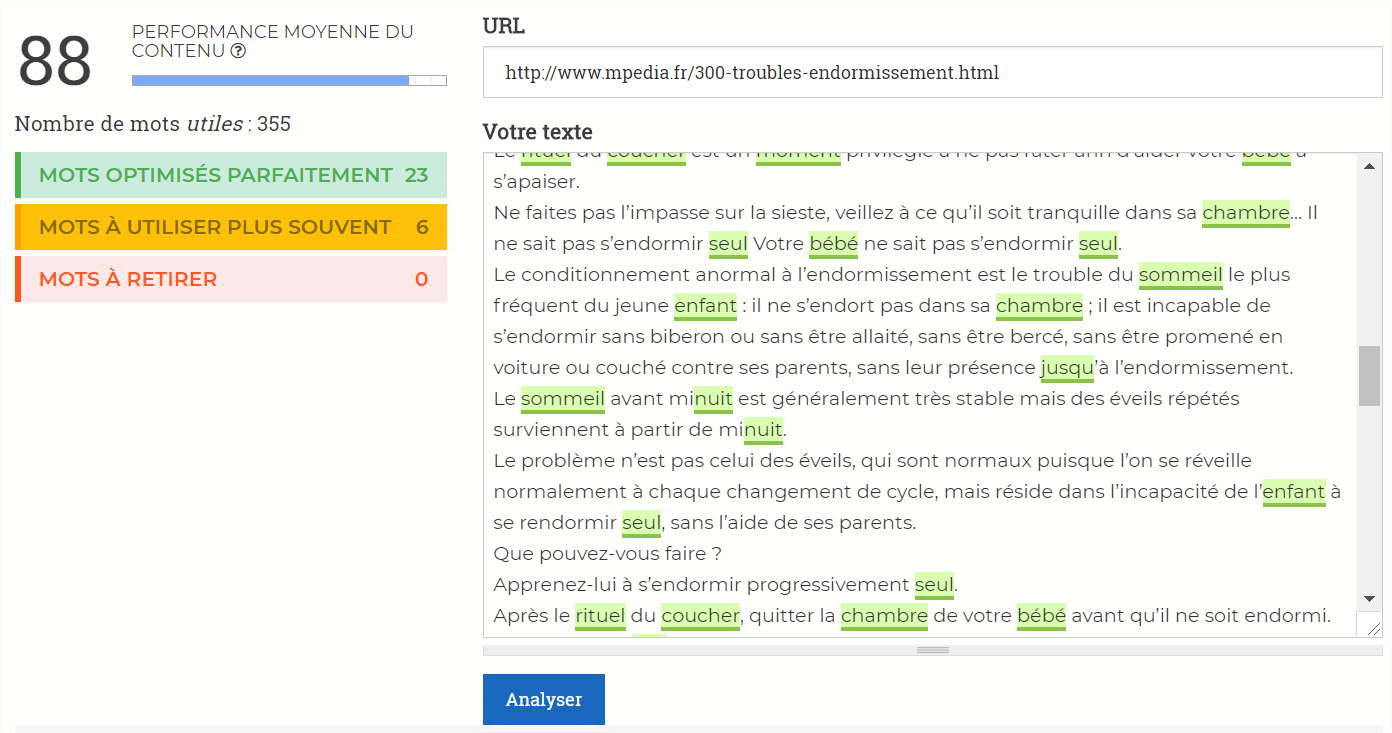
Are you ready for the 2019 trends?
So, these are the 6 SEO trends I'm preparing for in 2019.
In my opinion, this year will be the year of artificial intelligence and the rise of word embedding. We will also see better personalization of search intent, the progression of mobile technology, and voice searches. You are now well-prepared for this new year. It's up to you to use these strategies.
I wish you a year full of success and an ever-increasing conversion rate!
Are you ready for 2019? Do you have changes to make on your site? Do you have new ideas for 2019?
Need to go further?
If you need to delve deeper into the topic, the editorial team recommends the following 5 contents:
